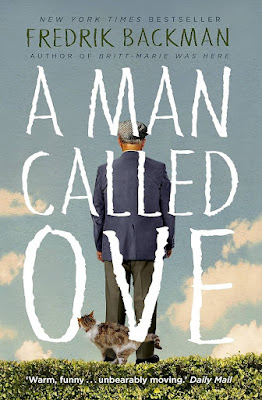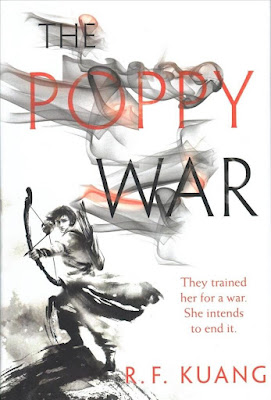The Rosie Project
Author: Graeme Simsion
Acquired in: 2020
 When you read books of a particular series
out of order, you tend to lose track of the proceedings or find the other
preceding books predictable. The problem was that I could not buy the Rosie
trilogy in order: first the last book, then the first one and the second one is
still on my wish list. Regrettable but not a big dampener. Having read the last
book first, I knew the base of the story and read through it as if it was a
flashback. And the flashback turned out to be quite entertaining.
When you read books of a particular series
out of order, you tend to lose track of the proceedings or find the other
preceding books predictable. The problem was that I could not buy the Rosie
trilogy in order: first the last book, then the first one and the second one is
still on my wish list. Regrettable but not a big dampener. Having read the last
book first, I knew the base of the story and read through it as if it was a
flashback. And the flashback turned out to be quite entertaining.
Acquired in: 2020
 When you read books of a particular series
out of order, you tend to lose track of the proceedings or find the other
preceding books predictable. The problem was that I could not buy the Rosie
trilogy in order: first the last book, then the first one and the second one is
still on my wish list. Regrettable but not a big dampener. Having read the last
book first, I knew the base of the story and read through it as if it was a
flashback. And the flashback turned out to be quite entertaining.
When you read books of a particular series
out of order, you tend to lose track of the proceedings or find the other
preceding books predictable. The problem was that I could not buy the Rosie
trilogy in order: first the last book, then the first one and the second one is
still on my wish list. Regrettable but not a big dampener. Having read the last
book first, I knew the base of the story and read through it as if it was a
flashback. And the flashback turned out to be quite entertaining.
Professor Don Tillman is a geneticist who
has a schedule for everything; from cleaning his bathroom to his daily meals.
In the thirty-nine years of his life, Don could not find a compatible partner,
partly because of his over-analytical nature and partly due to tactlessness.
Hence, he embarks on the Wife Project. Handing out meticulously created
questionnaires, he tries to find the perfect woman: non-vegetarian, non-smoker,
moderate drinker, possesses scientific aptitude, simple clothing style, math
skills... the list goes on.
None met his standards and the extreme
violation comes in the form of Rosie Jarman, who pops into his office, as a
prospect from his friend Gene. He doesn't even bother with a questionnaire; she
is everything that Don does not like.
As there was no risk of falling in love
with the world's most incompatible woman, Don agrees to help Rosie find her
biological father, who may be one of out of around fifty doctors who had
studied with her mother. As they go on a DNA collection spree titled the Father
Project, across two countries, Rosie helps Don realise that love just happens;
it cannot be found by simply analysing each woman who comes along.
The book has a breezy narrative flavoured
with dollops of humour but also has its thoughtful parts, like his friendship
with Daphne, a lonely infirm woman. Don's lecture for children with Asperger's
syndrome and their parents is a highlight. He doesn't sympathise or demonstrate
emotion. Instead, he points out the advantages: "organisation, focus,
innovative thinking and rational detachment." The plot is engaging because
of its portrayal of personality disorders without dilution and a slightly new
take on the clichéd notion of polarly opposite people being attracted to each
other.
There is a liberal dose of humour in the
book, courtesy Don. He does not mean to be funny all the time, I feel, but his
deadpan manner of talking enlivens every conversation ranging from the mundane
to the extraordinary.
Don does display characters of Asperger's
but does not recognise it. Nevertheless, he is perfect just the way he is.



Comments
Post a Comment